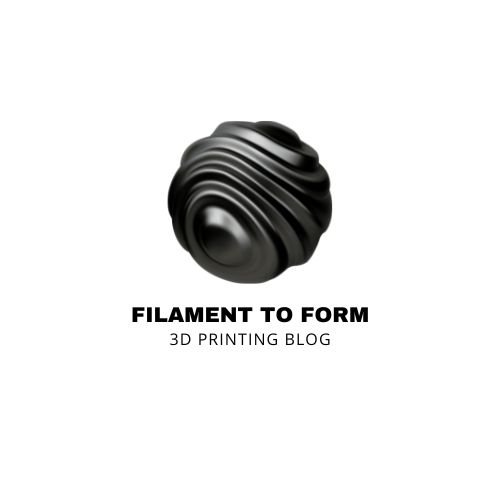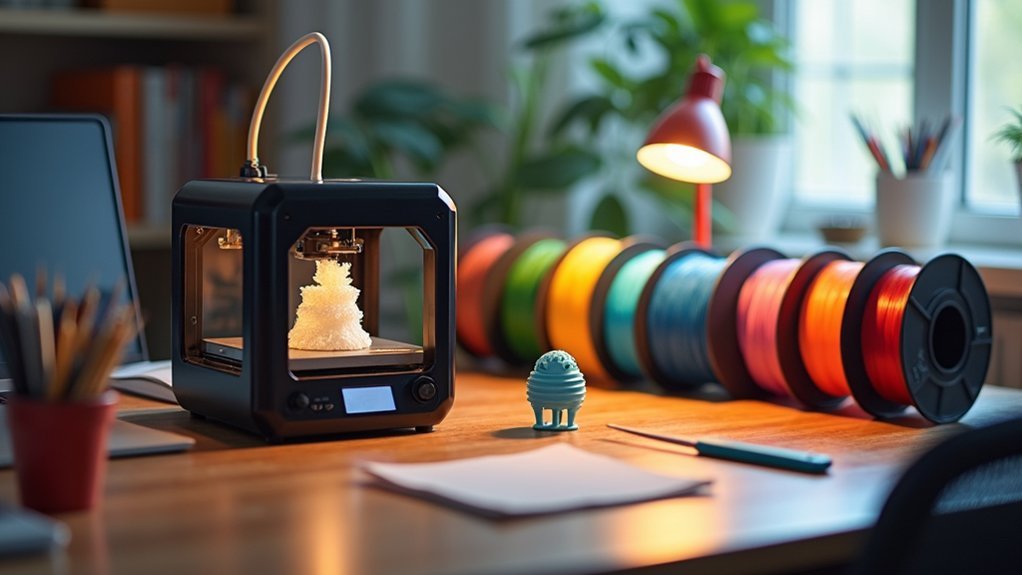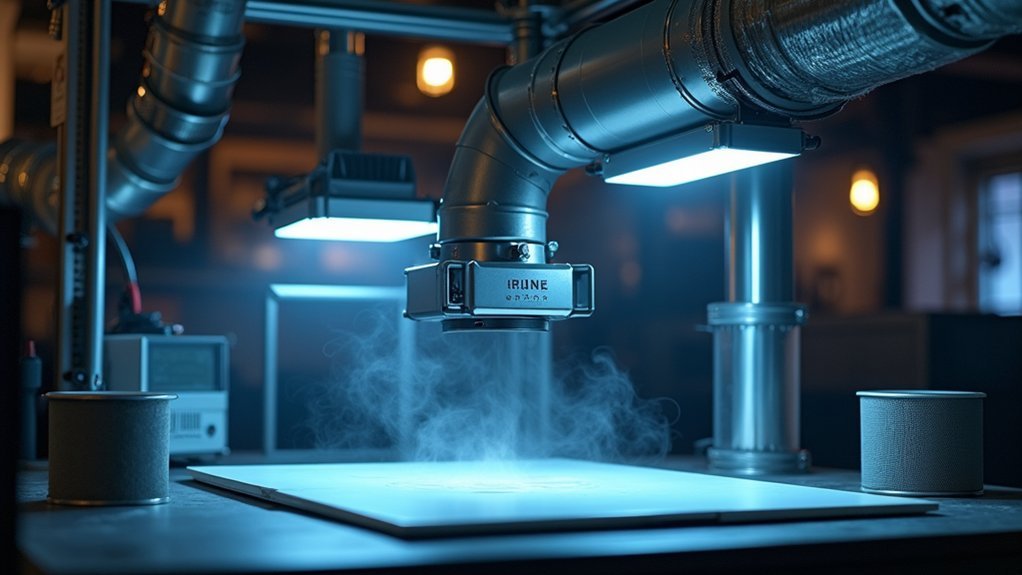You’ll save thousands by 3D printing custom dashboard gauge bezels instead of buying expensive billet aluminum options that cost over $4,500. Custom printing costs around $150 while delivering perfect fitment for vintage cars like your 1965 Chevelle. You’ll gain complete design freedom to eliminate unwanted features, accommodate complex shapes, and achieve professional-grade customization on any budget. Rapid prototyping lets you test multiple iterations for just $25-$30 each, ensuring flawless integration before final production. Discover how advanced techniques transform these printed components into OEM-quality results.
Cost-Effective Alternative to Expensive Billet Aluminum Options

When you’re looking to upgrade your dashboard with custom gauge bezels, 3D printing offers a game-changing alternative that’ll save you thousands compared to traditional billet aluminum options. You can create stunning custom dashboard gauge bezels for around $150 using 3D printing technology, while high-end billet aluminum versions often exceed $4,500.
This cost-effective approach delivers exceptional value without compromising quality or aesthetic appeal.
Unlike billet aluminum that requires extensive machining and generates significant material waste, 3D printing allows you to produce exactly what you need. You can even print large parts in segments, further reducing costs and material usage.
This accessible technology puts professional-grade customization within reach, enabling you to achieve that bespoke look you’ve always wanted without breaking your budget.
Perfect Fitment for Vintage and Classic Car Models
Precision becomes paramount when fitting custom gauge bezels to vintage automobiles like the 1965 Chevelle, where maintaining stock gauge layouts while accommodating your specific design preferences requires exact measurements and careful planning.
CAD modeling delivers the accuracy you need, ensuring your custom dash bezels align seamlessly with existing dashboard structures without extensive modifications.
3D printing’s flexibility lets you create complex shapes tailored to your specifications, eliminating unwanted radio and A/C vent spaces while avoiding traditional manufacturing’s high costs.
You’ll benefit from modular designs that allow interchangeable components, making it easy to adapt bezels for various gauge types.
Advanced printing techniques minimize layer lines and surface imperfections, delivering high-quality finishes that enhance your classic interior’s aesthetic appeal and functionality.
Complete Design Freedom and Customization Control

When you’re 3D printing custom dashboard gauge bezels, you’re not limited by what manufacturers think you want—you can eliminate those annoying radio slots, A/C vents, or any other features that don’t match your vision.
You’ll design exactly what fits your specific vehicle model and personal style, creating layouts that work perfectly with your chosen gauges and wiring setup.
This complete control means you’re building a dashboard that’s truly yours, with every detail tailored to your exact specifications and aesthetic preferences.
Eliminate Unwanted Features
Although traditional dashboard modifications often require costly compromises and extensive workarounds, 3D printing custom gauge bezels gives you complete design freedom to eliminate unwanted features entirely.
You can completely remove radios, A/C vents, or any other components that don’t align with your vision for a clean, streamlined interior. This approach allows you to redesign your dash bezel from scratch, creating exactly what you want without being constrained by existing layouts or manufacturer limitations.
With 3D printing, you’re not forced to work around factory components or settle for partial solutions. You can create a completely customized dashboard that reflects your specific needs and aesthetic preferences, achieving the exact look and functionality you’ve envisioned for your vehicle’s interior.
Perfect Fitment Solutions
Because every vehicle has unique dashboard dimensions and mounting points, 3D printing delivers the precise fitment that’s impossible to achieve with off-the-shelf parts.
You’ll create bezels that match your gauge cluster’s exact specifications through CAD modeling, ensuring seamless integration without gaps or misalignment.
The modular design flexibility lets you accommodate different gauge types and finishes while maintaining perfect proportions. You can print larger bezels in segments when your printer’s build volume is limited, then assemble them for flawless results.
This segmented approach eliminates the need for extensive modifications or compromises in your design vision.
Advanced printing techniques capture complex shapes and intricate details that traditional manufacturing can’t replicate.
You’ll achieve professional-grade fitment that looks factory-installed while maintaining the custom aesthetic you want for your dashboard.
Rapid Prototyping for Testing and Refinement
You’ll want to test your custom bezel designs before committing to final production, and 3D printing makes this incredibly straightforward.
At just $25-$30 per iteration, you can afford to print multiple versions to verify fitment, test different materials, and refine your design based on real-world feedback.
This rapid iteration process lets you catch potential issues early and guarantees your final bezel meets your exact specifications without costly mistakes.
Quick Fitment Verification Process
When creating custom dashboard gauge bezels, rapid prototyping serves as your most valuable tool for ensuring perfect fitment before committing to final production. You can quickly generate 2D templates from your CAD models to perform initial gauge alignment checks. This process eliminates costly mistakes by allowing you to test-fit components multiple times throughout development.
Your 3D printer enables segmented printing for larger bezel designs, making assembly and fitment testing straightforward. Each iteration costs only $25-$30, making multiple refinements economically viable.
By scanning existing dashboard components first, you’ll capture precise measurements that reduce reprints considerably. The iterative approach lets you make hands-on adjustments based on real-world testing.
Your slicing software generates optimized G-code for each specific print job, ensuring consistent quality and improved fit accuracy across all prototype iterations.
Cost-Effective Design Iterations
Iterative design refinement becomes your competitive advantage when prototyping costs remain under $30 per cycle.
You’ll slash expenses compared to traditional manufacturing methods that demand $4500 for billet aluminum alternatives. 3D printing enables cost-effective design iterations by letting you test multiple variations without breaking your budget.
CAD modeling streamlines your refinement process, allowing precise adjustments based on real-world fitment checks and user feedback.
You can print 2D templates first to verify dimensions before committing to full prototypes, eliminating costly reprints. Large dashboard components become manageable when printed in segments, reducing material waste and setup costs.
Heat-resistant materials like ASA guarantee your prototypes deliver functional testing data while maintaining durability standards.
This approach transforms expensive design cycles into affordable experimentation sessions.
Material Testing Before Production
Three material progression stages transform your dashboard bezel concept into a production-ready component through strategic rapid prototyping.
You’ll start with PLA for initial design validation, spending just $25-$30 per iteration while testing basic fit and geometry. This 3D printing approach lets you quickly adjust complex shapes based on immediate feedback.
Next, you’ll advance to ASA or reinforced nylon prototypes that withstand automotive interior temperatures reaching 160°F. These materials reveal how your bezel performs under real-world thermal stress.
Finally, you can explore Carbon Fiber options for premium applications requiring maximum strength-to-weight ratios.
This systematic material testing through rapid prototyping identifies design flaws early, ensuring your final dashboard bezel meets durability requirements while maintaining precise fitment and aesthetic appeal.
Material Selection for Heat Resistance and Durability
The scorching interior of a parked car can reach temperatures that’ll destroy poorly chosen 3D printing materials, making your material selection critical for dashboard gauge bezels.
ASA (Acrylonitrile Styrene Acrylate) emerges as the superior choice for heat resistance, withstanding automotive environments where temperatures climb to 160°F without compromising structural integrity.
Consider these key material advantages:
- ASA’s heat resistance – softens around 212°F, providing substantial safety margin
- UV stability – unlike ABS, ASA won’t degrade under sunlight exposure
- Dimensional stability – maintains precise fit better than high-temperature alternatives like Nylon
- Finishing compatibility – accepts sanding and vapor smoothing while retaining thermal properties
You’ll avoid the warping issues common with ABS while gaining durability that guarantees your custom bezels maintain their form and function through extreme temperature cycles.
Seamless Integration With Modern Digital Gauge Clusters

You’ll achieve professional results when your 3D printed bezels align perfectly with modern digital screens from Holley, Haltech, and Fueltech systems.
Your custom design must account for precise mounting points that maintain the screen’s ideal viewing angle while securing it firmly within the dashboard opening.
You can’t overlook cable routing during the design phase, as clean wire management guarantees your installation looks factory-original rather than aftermarket.
Perfect Gauge Alignment
When digital gauge clusters from brands like Holley and Fueltech replace traditional analog gauges, achieving perfect gauge alignment becomes critical for a professional installation.
Custom 3D printed dashboard bezels deliver the precision you need to eliminate gaps and misalignment issues that plague generic mounting solutions.
Perfect gauge alignment guarantees your digital displays integrate seamlessly into your dashboard’s existing architecture. The advanced 3D printing technology creates bezels with exact dimensional accuracy, matching your gauge cluster’s specifications flawlessly.
Key benefits of precision-engineered bezels include:
- Exact dimensional matching – Every measurement corresponds to your specific gauge cluster
- Elimination of gaps – Tight tolerances prevent unsightly spaces around displays
- Professional appearance – Clean lines create a factory-installed look
- Enhanced functionality – Proper alignment ensures ideal viewing angles and accessibility
Cable Management Solutions
Modern digital gauge clusters present unique challenges beyond simple mounting, particularly when it comes to managing the complex web of wiring required for proper operation.
You’ll find that custom 3D printed bezels offer sophisticated cable management solutions through their modular design, which incorporates internal channels that keep wiring organized and accessible.
By building provisions for gauges, controllers, and lights directly into your bezel design, you’ll streamline installation while reducing electrical issues.
The advanced 3D printing technology allows you to tailor each bezel for specific gauge types, optimizing cable routes for your vehicle’s unique layout.
This precision engineering minimizes dashboard clutter while enhancing both functionality and aesthetic appeal.
Professional Finishing Techniques for OEM-Quality Results
Although 3D printing creates the foundation for custom dashboard gauge bezels, achieving professional-grade results requires meticulous finishing techniques that transform raw printed parts into components indistinguishable from factory originals.
Professional finishing techniques elevate your bezels from obvious 3D prints to OEM-quality components:
- Surface preparation – Sand printed parts thoroughly and apply Bondo sprayable filler primer to eliminate visible layer lines and create smooth surfaces.
- Vapor smoothing – Use chemical vapor treatment on complex curved sections to achieve high-gloss finishes that match factory specifications.
- Color matching – Apply SEM black interior dye spray to perfectly match your dashboard’s existing color palette.
- Detail enhancement – Add chrome accents using Molotov chrome pens, then seal with Alclad Aqua Gloss for authentic metallic highlights.
These techniques guarantee seamless integration with your vehicle’s interior.
Eliminating Unwanted Features Like Radio Delete Plates
Standard radio delete plates often create an awkward visual gap that disrupts your dashboard’s flowing lines, but custom 3D printed bezels offer an elegant solution that completely eliminates these unsightly placeholders.
You’ll achieve a seamless, integrated appearance that maintains your stock gauge layout while removing unwanted elements entirely.
Traditional billet aluminum delete plates can cost upwards of $4500, making custom dashboard gauge bezels an attractive alternative at a fraction of the price.
You can design segments that eliminate radio openings and A/C vents while preserving structural integrity and perfect fitment.
3D printing technology lets you tailor designs to your exact preferences, creating bespoke solutions that reflect your individual style.
You’ll move beyond generic delete plates to achieve a refined, cohesive dashboard aesthetic that looks factory-engineered rather than modified.
Community Resources and 3D Printing Service Options
When you’re ready to transform your dashboard design into reality, specialized 3D printing services like Reversion Raceworks and D3D in Tujunga, CA offer automotive-focused expertise that guarantees your custom bezels meet professional standards.
These experienced providers understand automotive specifications and can deliver precise fitments for your dash modifications.
Community resources prove invaluable when selecting reliable services. Fellow enthusiasts share recommendations based on successful projects, helping you avoid costly mistakes.
Companies like Sew It Seams Custom Upholstery provide extensive scanning and printing capabilities for bespoke components.
Professional services typically follow this proven workflow:
- CAD modeling based on your specifications
- 2D template creation for initial fit verification
- Test printing for dimensional accuracy checks
- Final production using automotive-grade materials
Classic Dash offers customizable blank panels, enabling unique layouts without traditional fabrication costs while maintaining professional quality standards.
Long-Term Benefits and Performance Considerations
Beyond the initial investment in professional 3D printing services, your custom dashboard gauge bezels deliver substantial value through their exceptional durability and adaptability.
Advanced materials like ASA withstand temperatures up to 212°F, ensuring your bezels maintain structural integrity and aesthetics in extreme heat conditions. You’ll appreciate the modular design flexibility that allows easy upgrades as technology evolves, eliminating costly full dashboard replacements.
ASA materials maintain structural integrity at extreme temperatures while modular designs enable cost-effective upgrades without full dashboard replacement.
Custom 3D printed dashboard gauge bezels offer long-term cost savings through iterative prototyping that minimizes material waste while achieving precise specifications.
The tailored fitment eliminates modification requirements, reducing installation complexity and potential damage risks. Your vehicle’s value increases through personalized aesthetics achieved via CAD modeling, while the seamless integration maintains professional appearance standards throughout years of use.
Frequently Asked Questions
Why Does a 3D Printer Print an Outline?
Your 3D printer prints an outline first to create a strong perimeter that defines the object’s shape, prevents warping, guarantees proper bed adhesion, and provides structural foundation for subsequent infill layers.
Can You 3D Print a Car Dashboard?
You can 3D print car dashboards using materials like ASA for heat resistance. You’ll need CAD modeling for proper fitment, and large components require printing in segments before assembly for seamless results.
What Is the Biggest Problem With 3D Printing?
You’ll find warping is 3D printing’s biggest challenge. It causes dimensional inaccuracies that’ll ruin your part’s fit and function. ABS materials are especially prone to this issue during cooling.
Is 3D Printing Realistic for Consumer Personalization?
You’ll find 3D printing increasingly realistic for personalization as costs drop and technology improves. You can create custom items like phone cases, jewelry, and home décor affordably, making personalized manufacturing accessible.





Leave a Reply